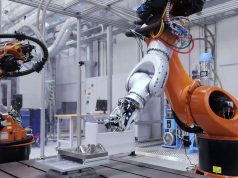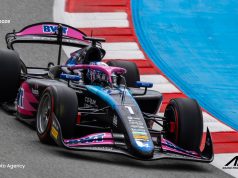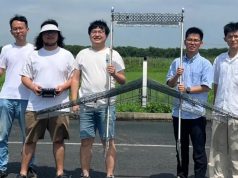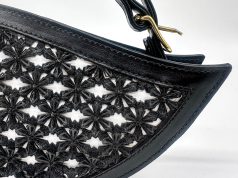Chinese bicycle expert Hanglun Technology relies on 3D printing technology from Farsoon, a Chinese industrial 3D printing company, to develop 3D printed, lightweight and fully customizable titanium bicycles.
Hanglun Technology has been setting standards with its “Hi-Light” brand since 1992. With an annual production of almost 20,000 frames, the company supplies leading brands worldwide. Recently, Hanglun has strengthened its position in the Chinese sports bike market, where it holds an impressive 80% market share.
Titanium alloys are known for their lightness, strength and corrosion resistance, making them ideal for applications in the aerospace, automotive and medical device industries. However, the processing of titanium is a challenge due to its special properties. Weld seams must be precise and flawless, as corrections are virtually impossible. These requirements make production costly and have an impact on the final price.
To meet these challenges, Hanglun Technology invested in the Farsoon FS350M 4-laser metal printing system in 2023. The goal is to produce over 50,000 titanium bicycle components annually. This advanced technology enables the production of components that are lighter, stronger and more durable than conventional products.
“3D printing is a game-changer in our industry and is leading the way in innovation. It pairs perfectly with traditional precision casting. Right now, we use precision casting for big production runs and 3D printing for those smaller, custom projects. This mix lets us create lighter, more complex, and highly customized bicycle parts. Plus, it helps us cut down on costs and environmental impact for small-batch production, speeds up delivery times, and makes the whole process smoother and more efficient.” Says Yanpeng Yang, Vice General Manager, Hanglun Technology.
With the new technology, Hanglun can not only respond more quickly to market requirements, but also achieve structural integration in a single component, which minimizes problems such as deformation and material fatigue. In addition, the optimization of the topology in 3D printing leads to a significant weight reduction of the frames, which significantly improves ride comfort and efficiency.
The introduction of Farsoon 3D printing technology underlines Hanglun’s commitment to continuous innovation. The titanium bicycle components produced with it have superior mechanical properties, including a tensile strength of 1035 MPa and an elongation at break of 13.5%. These improvements extend the life of the parts and demonstrate the advanced capabilities of 3D printing in the production of high-performance components.
By utilizing 3D printing, Hanglun remains at the forefront of the bicycle industry and strengthens the tradition of the “Hi-Light” brand through continuous technological advancements. This dedication to innovation ensures that each new product takes cycling performance and efficiency to a new level.
Subscribe to our Newsletter
3DPresso is a weekly newsletter that links to the most exciting global stories from the 3D printing and additive manufacturing industry.






















